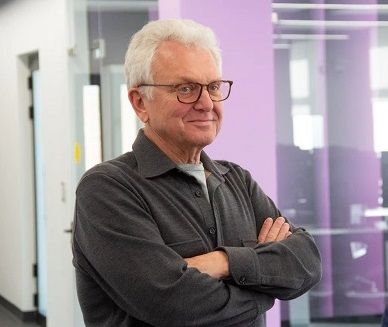On March 26th, members of the Supervisory Council discussed the results of another step in fulfilment of the SUSU's development program till 2036. The issues of the financial, administrative and economic activity of our university were raised. The key speech on the development strategy was delivered by the Rector, who reminded the meeting attendees that our university is currently a participant in two crucial federal projects: Priority 2030 and Advanced Engineering Schools.
The Rector mentioned the main results achieved in the fields of science, education, personnel and infrastructure within the frameworks of these federal projects. Alexander Wagner specifically stressed the goal-setting within the strategy, and namely the building of an image of the future university oriented at developing of Industry 4.0.
Speaking about the university's participation in the Priority 2030 program, the Rector drew attention to the implementation of the key strategic projects: Intelligent Manufacturing, and New Non-conventional Materials. Our university has learned how to solve the task of consolidating research teams of various specializations in order to achieve the common goal of strategic project development.
Also in his speech, the Rector noted the interaction with our industrial partners (PAO Chelyabinsk Forge-and-Press Plant and AO PG KONAR), opening of new industrial faculties (Mechatronics and Robotics, and Mechanical Engineering and Technology), opening of youth laboratories, and other important aspects of our university's development.
"Among our most important achievements is the victory in the megagrants contest for young scientists (Anna Paterova became the winner, while there were only two grants allocated for research teams across the whole Russia). Anna's application for the “IR Metrology Based on Quantum Interferometry” Laboratory gained one hundred points out of the possible one hundred points. Today Anna Paterova works at South Ural State University and develops quantum physics technologies under our Intelligent Manufacturing strategic project," stressed Alexander Wagner.
In his report, the Rector specifically touched upon the subtleties of developing the financial model of our university:
"The growth of the consolidated budget must be related to the growth of the research-and-development activity. The Ministry of Education and Science has set tasks for all universities, including ours, to ensure the growth of income from the scientific research activity and research-and-development activity."
The report sparked a lively discussion: members of the Supervisory Council actively shared their comments and feedback regarding the strategy implementation.
Vasilii Osmakov, First Deputy Minister of Industry and Trade of the Russian Federation, noted that it is necessary to use the risk management principles during the strategy implementation and allow for all possible scenarios.
"We should take into account various possible stress scenarios, model the stress tests based on local focus groups, and think through different variants of overcoming these stress situations," said Vasilii Osmakov.
The Chairman of the Supervisory Council Viktor Khristenko noted that there should be a tighter connection between the fundamental and applied scientific directions in the strategy.
"Today we are living in the conditions of uncertainty," stressed Viktor Khristenko. "The circumstances of negative nature have made us realize our new needs. We must overcome this situation and acquire something new and develop something new along the way, including in the fields of robotics and aerospace engineering technologies. There have always been plenty of academic programmes with restricted access at SUSU (former Chelyabinsk Polytechnic Institute). That is why the university must adsorb the challenges of the new times as well, and polish our response to them in small-scale research studies first."
Vice-President of the National Research Centre "Kurchatov Institute" Aleksandr Blagov suggested, as part of preparing for the next meeting of the Supervisory Council, to select several key directions of development (for example, robotics, foundry production, additive technologies), analyze how important these are for our university and how they will be developing within the next 10 years with consideration to all available tools ("Heart of the Urals" Advanced Engineering School, interaction with industrial partners, financial aspects, education), and discuss at the next meeting what these directions will look like over the 5-10 years' time, and what results they may yield.
"We need to come up with our own structured inner "Prioritization" of those projects and directions that are relevant today and perform a general strategic analysis for the university in the context of development of the whole Russia," summarized Viktor Khristenko.
The Supervisory Council drew special attention to the issues of construction of the Inter-university Campus, which will soon become an important element ensuring the dynamic development of our university and its cooperation with the whole scientific and educational community of the Chelyabinsk Region.




